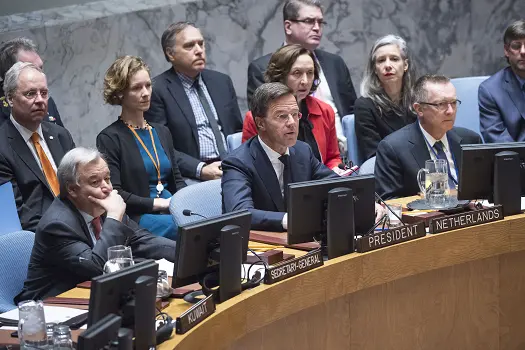Research
This report examines how and to what extent multiple external actors are increasing their influence over the political elites and peoples of Western Balkans countries. It considers economic, political, religious cultural and security-related factors, and their impact on the future of peace and state-building processes. Increasingly, Eastern actors have been using hybrid threats (disinformation warfare, covert operations to win the hearts and minds of the population by Russia), spreading violent extremism (Gulf countries), potentially debt-trapping some Western Balkans countries (China), violating the EU laws on arms trade (Gulf countries) and implementing identity reengineering (Gulf countries, Iran, Russia, Turkey) in order to advance their geopolitical interests. Indeed, the Eastern actors often adopt a holistic approach in focusing on winning hearts and minds of the Western Balkans population.
These security risks can derail the stability of the region in the long term with negative ramifications towards the EU and NATO integration processes as well as EU regional policies. For instance, it has been found that for political reasons, the West is now less attractive to the Western Balkans. Local elites may be less willing to engage with the West because they are reticent to promote the rule of law, or because of a lack of personal ties between the Western Balkans elites and Western counterparts. Moreover, there is fatigue to engage with the West because interaction is very time-consuming and complicated, for instance with regard to obtaining grants. Most importantly, factors such as the lack of coherent strategy from the West, the failed post conflict reconstruction due to the prioritization of stability over democracy, the lack of a realistic EU enlargement agenda, and the lack of engagement with the local population has disillusioned both elites and common people across the Western Balkans region. This is why engagement with Eastern partners often seems more appealing: it is easier to obtain grants for projects, leadership styles are more similar, and local elites feel more secure about their own positions and the maintenance of the status quo, effectively perpetuating the grip on power by illiberal elites.
The central objective of this report is to outline policy recommendations which can holistically deal with the challenges posed by Western and Eastern actors in the Western Balkans region. In aiming to bolster peace and security in the Western Balkans region, the policy recommendations are grouped from general to specific, focusing on aspects of law, economic, security and social affairs.
Generally, the region may be at a turning point where populations that are generally torn between the West and the East may begin gravitating more towards the latter. The West, therefore, needs to craft a response soon in order to avert further instability in the region. For this purpose, it would be crucial to re-establish legitimacy while strengthening the moral authority of the West, speaking with one voice in the region, and, crucially, maintain a realistic EU Enlargement Agenda, such as opening the membership negotiations for North Macedonia and Albania. It would also be beneficial to award Bosnia and Herzegovina a candidate status, and to agree to visa liberalization for Kosovo. The agenda needs to remain proactive and to be implemented thoroughly. Existing instruments need to be employed and more exposure needs to be generated to show and explain Western engagement with the region, not only aimed at the elites but also at the local population.
It is therefore crucial that Western actors respond swiftly and reinforce their efforts to promote democracy. This in turn would help in winning the hearts and minds of the local population. In addition, it is important to provide alternatives to local governments to prevent them from getting caught in the debt trap diplomacy of China, to counter Turkish authoritarian propaganda, to prevent violent extremism, supported by the Gulf countries and Iran, as well as to counter disinformation warfare conducted by Russia, as well as the rising far right violent extremism identified in Serbia, Bosnia and Herzegovina, and Croatia.
In the legal sphere, our recommendations call for implementing laws on transparency and strengthening of the judiciary, regulating housing prices and building new mosques. In the security sphere, it is crucial to harmonize security policies of Western Balkans countries with those of the EU and its member states; consider sanctions for arms exports if in violation with the EU laws; promote individual responsibility; strengthen the border control; and to limit the appointment of foreign imams. Regarding economic measures, it is suggested to open the EU Cohesion Fund to Western Balkans countries and to encourage further investment in rural areas. In terms of societal measures, it is important to increase the prominence of public awareness campaigns, and to promote civil society engagement. It is also proposed to challenge the attractiveness of Eastern actors by informing the local public about these countries’ strategies to sow social divisions. It is also important to increase cultural exchanges and language courses. Finally, it is essential to monitor the changes in societal values and beliefs. A combination of these types of measures may assist in strengthening democracy in the region as well as countering external influences. However, this necessitates tailored implementation tracks for each country which requires further in-depth research on how to implement such strategies through a governmental and societal approach.






